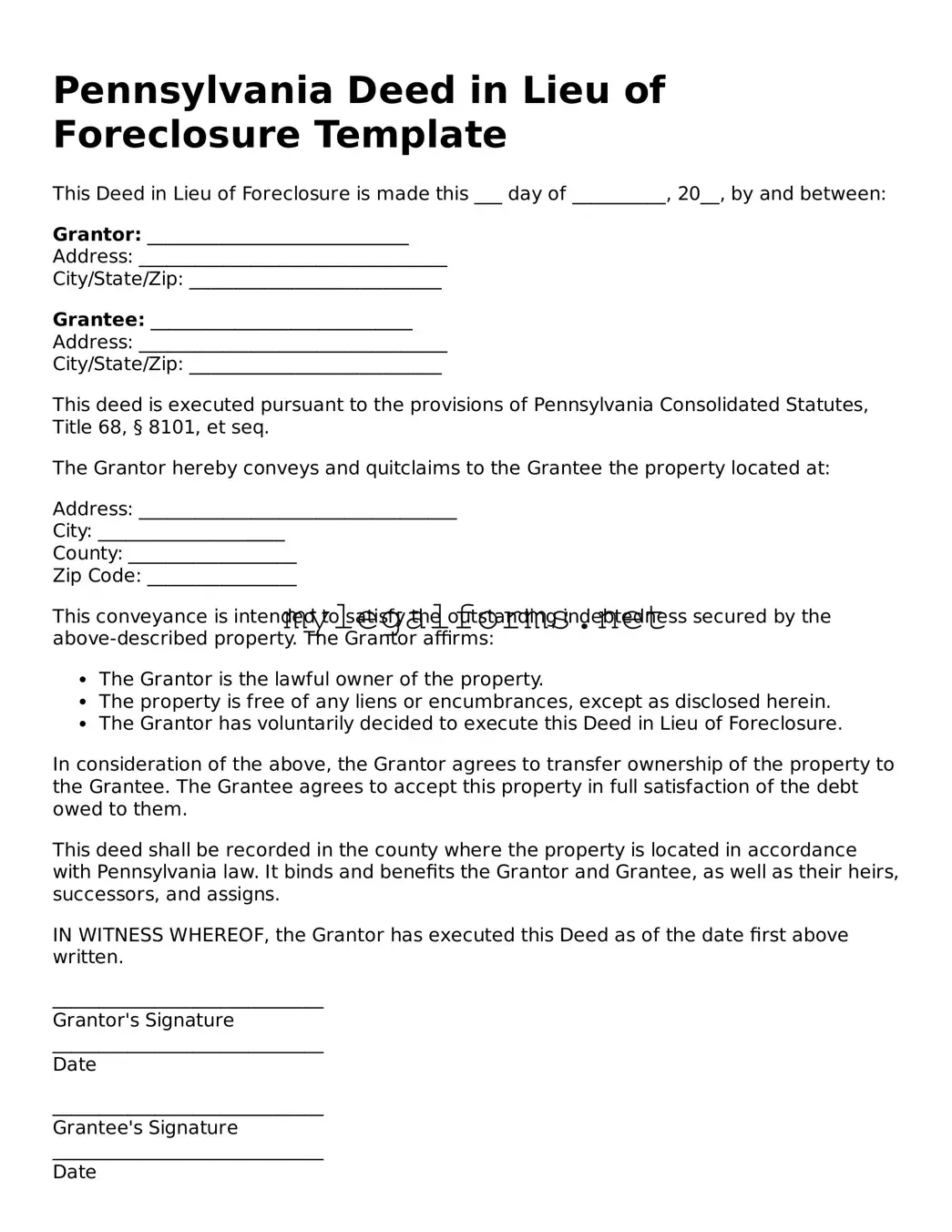Deed in Lieu of Foreclosure Document for Pennsylvania State
A Deed in Lieu of Foreclosure is a legal document that allows a homeowner to transfer the ownership of their property to the lender to avoid the foreclosure process. This option can provide a more streamlined resolution for both parties, often leading to less damage to the homeowner's credit. Understanding the implications and procedures involved in this form is essential for those facing financial difficulties.
Launch Deed in Lieu of Foreclosure Editor

Deed in Lieu of Foreclosure Document for Pennsylvania State
Launch Deed in Lieu of Foreclosure Editor

Launch Deed in Lieu of Foreclosure Editor
or
⇓ PDF Form
Complete the form at your pace — fast
Finish your Deed in Lieu of Foreclosure online and download the final version.